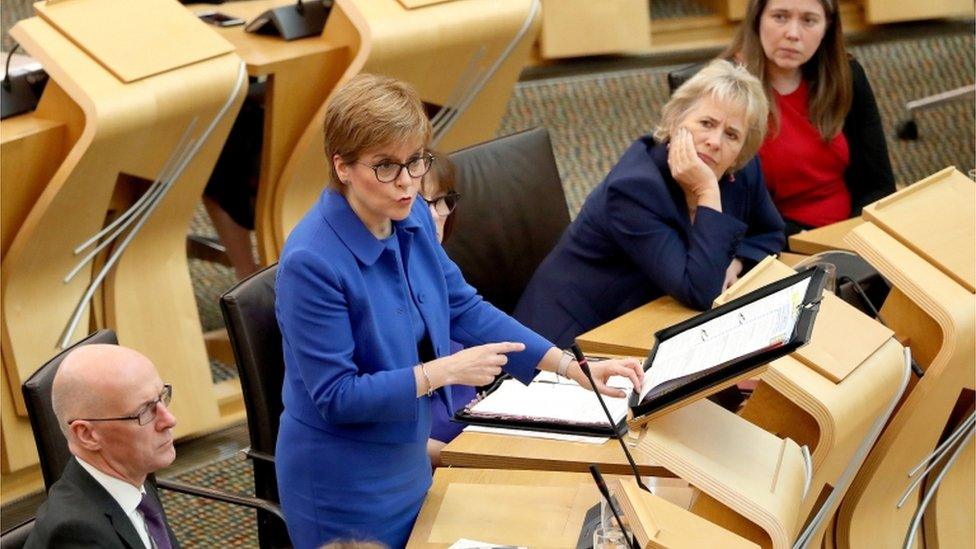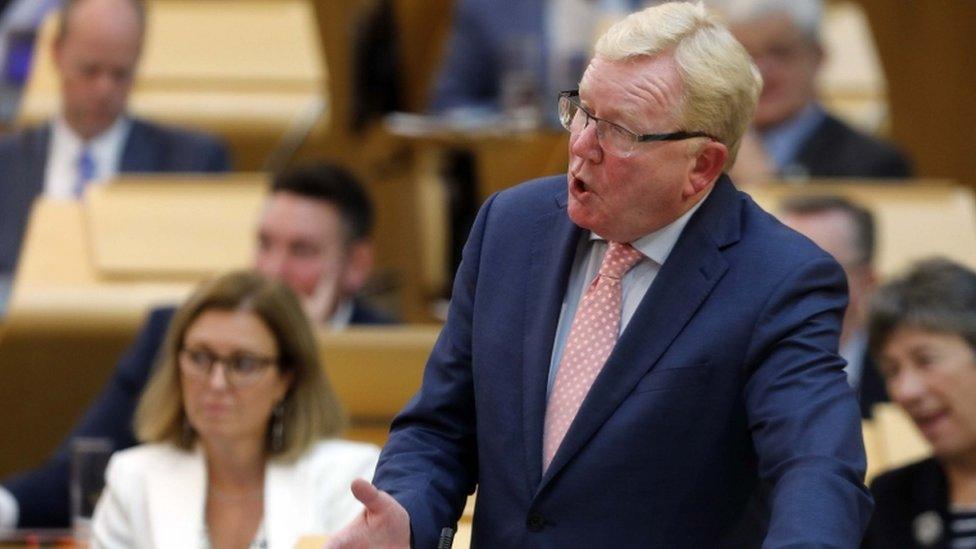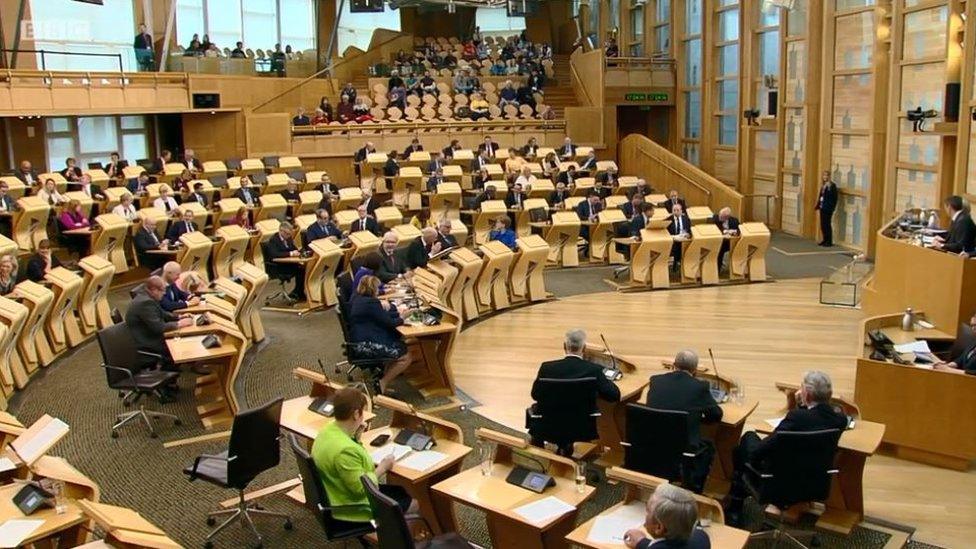Scunnered? MSPs debate no-deal Brexit
- Published

Nicola Sturgeon stressed her opposition to Brexit in any form
We are nearing the end, declared Donald Cameron of the Conservatives. Above the chamber hovered the spectre of public disenchantment, sighing "if only".
Said spectre, whom we will name Scunner, spoke sibilantly for many. But successive MSPs at Holyrood warned against heeding this ghostly presence.
Labour's Alex Rowley, for example, said he well understood the popular view that anything which ends the agony of Brexit is worthwhile.
But he warned that the real pain would only begin with a no-deal Brexit. That, he said, would be the genesis of an authentic nightmare.
In the debate, and earlier during questions to the first minister, the SNP argued that the Tories were attempting to offer a false and damaging dichotomy.
Nicola Sturgeon said that she was particularly opposed to a no-deal Brexit - but would not sigh with relief, like our spectral friend, if there were to be, contrary to current appearances, a negotiated departure.
Indeed, the FM spelled out her view very bluntly in order to assist Jackson Carlaw, he who is once more interim leader of the Scottish Tories.
She was against Brexit. Full stop. No equivocation. It was a Bad Thing.

Jackson Carlaw is interim Tory leader once again following Ruth Davidson's departure
Yes, her government had attempted at a much earlier phase to offer a potential compromise whereby Scotland or the UK as a whole would remain in the customs union and single market.
But this compromise had been utterly ignored. Her declared aim now was to secure a further referendum on the EU - and campaign to remain.
Mr Carlaw seized upon this as evidence that the FM was working with those who were, in effect, undermining the prime minister's attempts to secure a deal.
The argument is that the EU will only bargain seriously if they know that the UK will leave without a deal. Removing that threat, it is said, weakens the PM's hand.
To which critics in today's debate offered two rebuttals. One, no-deal would arguably damage the UK more than the EU. It would be an exercise in foot-shooting.
Two, they claimed that Boris Johnson was no longer truly seeking a deal, despite declaring previously that the chances of no-deal were a million to one.

MSPs voted against the idea of a no-deal exit
Willie Rennie of the Liberal Democrats offered a theory as to why. He said that the PM was pursuing no-deal in order to secure votes in the coming UK general election which would otherwise go to the Brexit Party.
For the Greens, Ross Greer maintained the link - condemned by the Tories - between the issues of Brexit and Scottish independence.
He said that the actions of Mr Johnson made clear that Scotland's interests could not be safeguarded within the UK.
In all, it was a substantive and thoughtful debate. The Brexit Secretary Mike Russell claimed that the devolved administrations were being kept in the dark by Whitehall about Brexit preparations, causing real risk.
And, on all sides, there was a successful attempt to avoid any impression that these were but noises off, that this was a debate in an ante-chamber.
MSPs from all parties said it was valid, vital indeed, for voices to be raised from across the UK on the subject of Brexit. Including in Scotland's devolved parliament.
